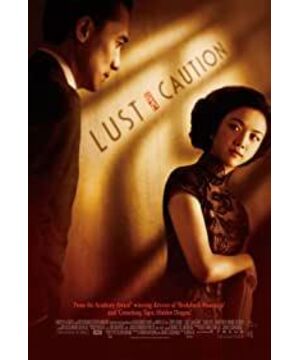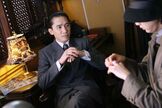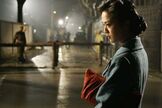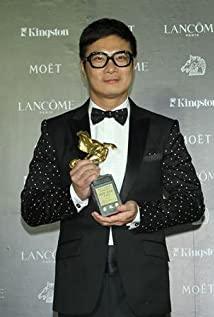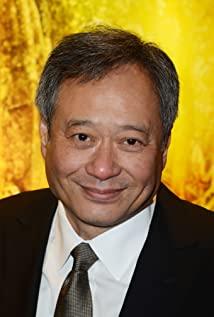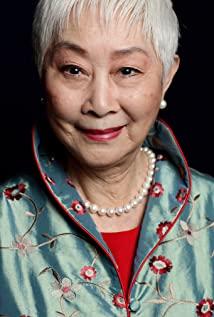Original author: Dennis Lim
Photo: Chan Kam Chuen/Focus Features
Published in: The New York Times on August 26, 2007
Chinese translation: www.monsternunu.com The
English version is copyrighted by Dennis Lim and newyork times, please contact the author for reprints.
The copyright of the Chinese version belongs to www.monsternunu.com , please indicate the source when reprinting.
In 2005, the blockbuster "Brokeback Mountain" won Ang Lee an Oscar for Best Director. In Brokeback Mountain, love is unforgettable, elusive, fleeting, and fleeting. Lust and Caution, which will premiere at the Venice Film Festival this week, is also a tragic tale of protagonists confronted by forces they cannot resist, but the love story takes an even more brutal point of view. This time, love has become a show, a hoax, and most cruelly, an illusion.
"Brokeback Mountain is about a lost paradise, a Garden of Eden, but Lust and Caution is a trap, a terrifying place, and more like a hell," Ang Lee said during his final sound treatment in Manhattan this month.
Lust and Caution is adapted from a short novel by the famous Chinese writer Zhang Ailing. The story takes place during the Anti-Japanese War in the 1940s, mostly in Shanghai, which was occupied by Japan. The heroine, Jia Zhi (Tang Wei), is a member of the Lingnan University Theatre Company and is participating in a plot to assassinate the traitor Mr. Yi (Leung Chao-wai). She is assigned to seduce Mr. Yi, an official of the puppet government, and driven by passion and suspicion (as the film's title says), Ga-ji falls into a desperate erotic sensuality. The cast also includes Chen Chong, who plays the greedy and multilingual Mrs. Yi, and Lee Hom Wang, the American-born Asian pop star, as the student leader. (The film will be screened at the Toronto Film Festival next month and will be released on September 28)
Eileen Chang began to write this story in the 1950s, and after repeated revisions, it was finally published in 1979. When Ang Lee read this story for the first time, it felt like reading Brokeback Mountain by Annie Proulx, and was deeply moved. he. "At first I thought I couldn't make it into a movie," Ang Lee said, but he kept thinking about it. "But there was always something in the story that made me feel like it happened to me, so that became my mission."
Ang Lee was born in Taiwan in the 1980s and started working in the United States. Like Ang Lee, Eileen Chang also lived in Two Worlds, her famous stories and novels written in the 1940s, evoke the fascinating and intoxicating fusion of old Shanghai with the East and the West.
After 1949, Eileen Chang flew to Hong Kong and then to New York, where she continued her writing and translation work. Although her reputation was growing in the Chinese world, her life became more reclusive. She died in Los Angeles in 1995. Her work was brought to the screen by Hong Kong directors Kwan Kam-peng ("Red Rose, White Rose") and Xu Anhua ("Love in a Fallen City").
Ang Lee is a shrewd observer of the distorted power of sexual desire and repression (not only in Brokeback Mountain, but also in the very different styles of Ice Storm, The Wedding Banquet, and Sanity). The temptation of Lust and Caution is that this love story that ends in seemingly rash and irrational behavior has a mystery that cannot be ignored. "It's too complicated and too difficult to articulate," he said. "Maybe it's not clear."
In order to adapt Eileen Chang's short essay into the script for the film (the Chinese version of the film is two and a half hours long), Ang Lee invited the author who had worked in "Eating and Drinking Men and Women" (1994) and "Sleeping". Wang Huiling, who worked as a screenwriter in Tiger Hidden Dragon (2000). He also brought in James Schamus, the president of Focus Films and the producer of Lust and Caution. James is also the screenwriter of Ang Lee's works. James' unfamiliarity with Eileen Chang's work became his advantage.
"I don't have the natural reverence for Eileen Chang that Chinese readers do, so I don't have too many qualms when I propose revisions," he said.
"Lust and Caution" took four months to shoot in Hong Kong, Malaysia (representing the old Hong Kong), and Shanghai, but such a grand production only used a budget of 15 million US dollars. The most ambitious of these was the redevelopment of a part of Nanjing Road, a commercial section of Shanghai, to its original scale, containing more than 100 shops, within three months. "Still, it's the hardest job to do the raw, intense scenes of a passion scene," says Schamus, thinking of the scene in Crouching Tiger, Hidden Dragon, where the actors are hoisted by wire, "this time it's easier than that. But it's even harder for Ang Lee, this movie brought his feelings to the extreme."
In Ang Lee's "Lust and Caution", he made no secret of the "lust" in it, while Eileen Chang only showed her gorgeousness There is a hint of "color" in the refined article. "It's very brave to put the pleasures of women's sexuality into a war story full of masculinity and machismo," Ang Lee said. It's a small drop of oil paint, but there are big ripples." He said that he felt that he did not need to retain the careful handling of "color" in the original text: "In Chinese culture, artistic expressions are often obscure, but movies are different. , the film is the tool of the image.”
As a result, there are some blunt and explicit erotic scenes in his films (the version released in China cuts a few). The love scenes were filmed for 11 days in a closed place with only camera and sound effects present. Ang Lee describes the physical and emotional performance of the scenes to Tony Leung (the Hong Kong movie star who became famous for Wong Kar-wai's films) and Tang Wei (who has never acted in a movie before), then leaves the room for them to improvise. "Ang Lee is a special director who will teach you how to maneuver," Tony Leung, who was filming with John Woo in China, said in an email. "He's very sharp and intuitive, which gives the actors a lot of new things to offer."
The process is painful. "We only had half a day to film because everyone was so tired," Ang Lee said. "I almost went crazy." But he insisted that the love scene was a must. "It's like the Wu Da scene in Crouching Tiger, Hidden Dragon," he said. "It's the life of the movie. It's where they can really express the characters." He added, "It's also part of the secret plan in the film. , it's only about acting and the level of acting, when you're in ML you know it's acting." (Lust, Caution hadn't yet received an MPAA rating at the time, but both Ang Lee and Schamus hoped their The movie is NC-17)
"Lust and Caution" can not only see Shanghai in the 1940s, but also the shadow of Hollywood in the 1940s, which reminds people of some noir films and wartime love musicals. There’s also a Hitchcock feel to it, as the poster for “Suspicion,” a film Ang Lee said was popular in Shanghai in 1942, flashed before his eyes. The intricately perverted love and espionage in Notorious had an obvious influence on Ang Lee's writing (and perhaps some on Eileen Chang, who occasionally wrote some plays for Cathay Studios in Hong Kong in the 1950s and 1960s) ). Ang Lee also talked about another movie: in Josef von Sternberg's 1931 film Dishonored, Marlene Dietrich played a Austrian female spy who collects Russian intelligence.
For Ang Lee, whose parents had been uprooted from mainland China for many years, Lust, Caution had many political resonances. "It's about occupation and being occupied," he said, "and the most dangerous thing here is falling in love with the occupier." Ang Lee points to the sad thought implicit in the story: although the story is based on a true story from the 1930s But it includes Eileen Chang's own experience: her college life in Hong Kong was disrupted by the war, and she fell in love with an older man who was recognized as a traitor. Zhang Ailing's first husband, the writer Hu Lancheng, once served in the puppet government, he was still a romantic person.
"It's really hard for me to live in Eileen Chang's world," Ang Lee said. "I often dislike her because of it. So sad, so tragic. But you know there's a lack of love in her life: romantic love, family love." He added, "This story is about what killed her. Love."
View more about Lust, Caution reviews


